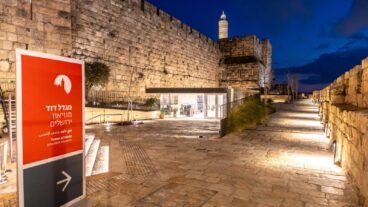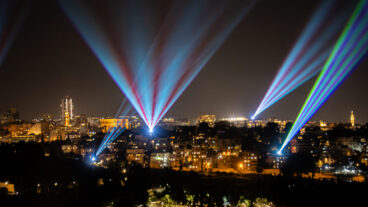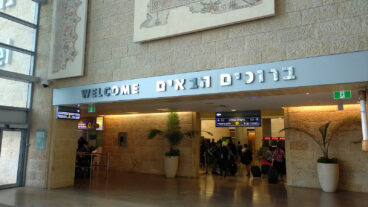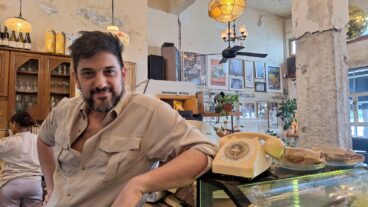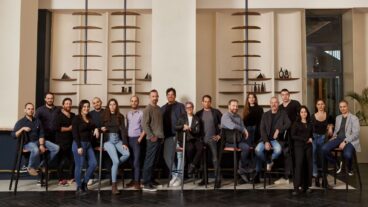Runners from across the globe are flocking to the starting line of Jerusalem’s inaugural ‘breathtaking’ international marathon.
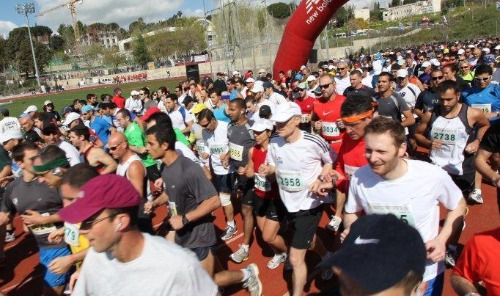
On March 25, the streets of Jerusalem will be closed to traffic as thousands of runners hit the cobblestones for the city’s first international marathon.
The event will be a dream come true for Mayor Nir Barkat, a five-time marathon runner. Soon after he was elected in November 2008, Barkat asked Municipal Sports Authority director Uri Menachem to take charge of organizing the city’s first full marathon.
After a year of hard work on the part of Menachem and countless City Hall staffers, Israel’s capital has officially joined 500 cities, from Barcelona and Belfast to Seoul and Saipan, which offer yearly marathons.
“When you are a marathon runner, you tour the world according to where the marathon cities are,” says Menachem. “Jerusalem is one of most special cities in the world and this will provide one more reason for people to come and see its beauty.”
Among the hundreds of entrants registered from 30 countries are a contingent of 40 employees of one American company, a few Olympic runners and a 62-year-old Scotsman with 170 marathons under his belt.
For most, the promise of $19,500 prize pots for the male and female winners is not the motivating factor. Achieving one’s personal best while viewing the sights of a fabled city is the more common draw.
Physically challenging, visually stunning
Given Jerusalem’s hilly, rocky terrain, it will likely take the runners a bit longer to make it to the finish line at Sacher Park, where the 51-year-old Barkat – who plans to complete the half-marathon option with his regular running group – will be waiting to greet them.
“Some places, like Berlin, have a flat and easy track, which lets marathon runners finish faster, but it’s not so beautiful,” Menachem points out. “A lot of runners don’t care if it takes them an extra few minutes. They want to run and enjoy and see the city.”
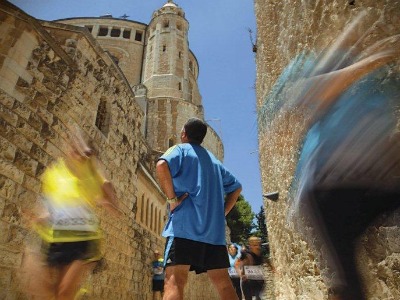
The Jerusalem run has been titled “the Breathtaking Marathon” to capture the idea that it will be both physically challenging and visually stunning.
The full 42.195-kilometer, or 26.22-mile, track – fully sanctioned by officials from the Association of International Marathons and Distance Races (AIMS) — goes through downtown Jerusalem and continues from south to north, through the Old city and its walls, past ancient and modern landmarks including the Knesset, President’s Residence, Sultan’s Pool, Jaffa and Zion gates, Ammunition Hill, the German Colony, Mount Scopus and the Sherover Promenade.
Participants may choose instead to run a 10k race or a 4.2k “people’s race” to benefit charitable causes such as the Israel Cancer Association and Shalva, the association for mentally and physically challenged children.
Pasta and parties
Foreign visitors will be joined by hordes of Israelis, including many soldiers and police officers and possibly some high-ranking ministers, cheered on by well-wishers including schoolchildren who will enjoy a Friday off from school for the occasion. All Israeli sports channels will provide live coverage.
Leading up to the marathon, Jerusalem’s International Convention Center will host a three-day fitness and health expo open to the public. A carbo-loaded pasta dinner is on the menu for registrants from abroad the night before, and they also will get complementary tours.
A large public festival is planned in Sacher Park from the morning of the race until the runners cross the finish line. There will be food, entertainment and marathon-themed merchandise for sale.
Confirming that this is meant to become an annual event, even a tradition, Menachem expects that next year’s marathon will be easier to organize than this maiden run, which attracted a slew of domestic and international corporate sponsors such as Adidas and El Al Israel Airlines.
“We want to give participants an experience they won’t forget,” says Menachem. “We don’t want them to forget the city or the race.”







